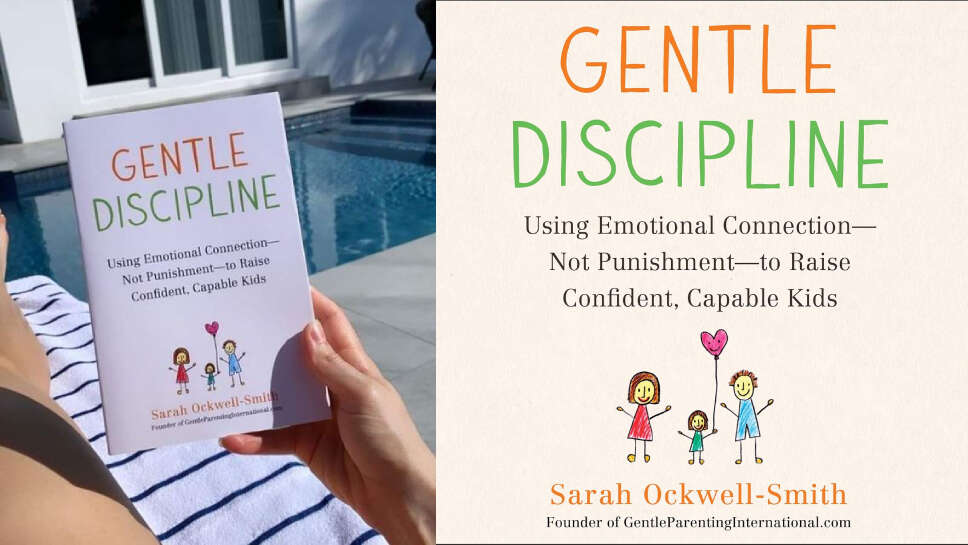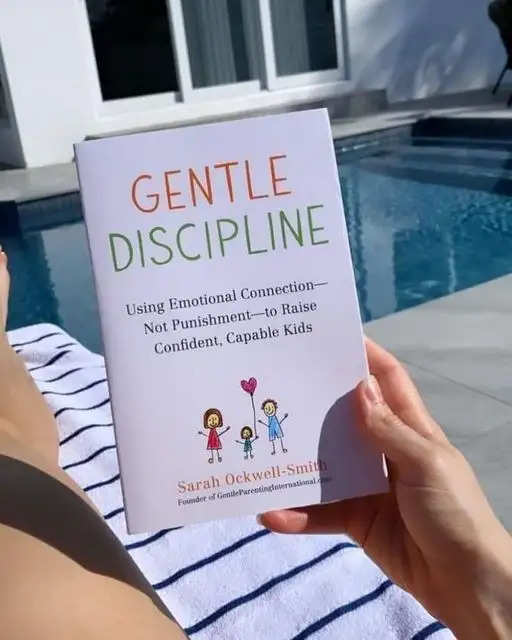7 Key Lessons from Gentle Discipline to Raise Confident, Capable Kids

Sarah Ockwell-Smith offers insightful advice in her book Gentle Discipline: Using Emotional Connection–Not Punishment–to Raise Confident, Capable Kids about parenting in a way that supports their emotional well-being and good behaviour.
The book teaches us among other important things that a child's great desire to please us is the most effective instrument we have to mould their behaviour. Children are driven to seek acceptance from someone they trust naturally; emotional connection is therefore quite important.
Some of the main ideas from the book are broken down here:
1. Emotional connection is, according to Eckwell-Smith, the cornerstone of every decent relationship with your child. Children who feel safe, loved, and understood are more likely to react favourably to direction and rules. A youngster cannot feel safe enough to make mistakes, learn from them, and develop without trust. Parents that give emotional connection top priority create an environment in which their children feel appreciated, which motivates them to act in line with family values.
2. Every child develops at their own speed; so, parents should be aware of where their child stands in regard to their emotional, cognitive, and physical development. Knowing the phases of child growth helps parents respond appropriately and create reasonable expectations. Toddlers could not yet be able to manage their urges, for instance, so it is illogical to expect them to act the same way an older child would. Understanding developmental benchmarks helps parents to respond with more empathy and patience.
3. Emphasise Positive Reinforcement: Over punitive policies, Ockwell-Smith supports positive reinforcement. She advises emphasising identifying and praising excellent behaviour instead of punishing negative behaviour. When kids accomplish something good, we reward those behaviours and increase their likelihood of repeatment. For example, praise a youngster for following instructions without protest or for sharing with a sibling. Good reinforcement promotes a cooperative attitude and confidence.
4. Setting boundaries is a vital aspect of parenting, but it's also vital to do it compassionately. Children need to know what is expected of them, Ockwell-Smith emphasises, but they also need to feel valued. Though without harshness, boundaries should be clearly stated and enforced often. Parents help children internalise such limits more successfully by providing reasons for why particular actions are unacceptable and by doing it in a kind and understanding manner.
5. Ockwell-Smith promotes letting natural consequences play out rather than enforcing penalties. Children should thus be enabled to see the results of their activities so they can develop responsibility. A child might become chilled, for instance, if they refuse to put on their coat when it is cold. Parents might just let their children experience the logical results of their decisions instead of penalising them. This encourages youngsters to take responsibility by helping them to link their activities with the results.
6. Encourage parents to assist their children acquire problem-solving abilities, says Ockwell-Smith. Parents can include children in the process of finding answers instead of just guiding them in trying circumstances. This strategy develops independence and critical thinking. If a youngster is unhappy because they can't get along with a sibling, for instance, a parent can ask, "What do you think you could do to help solve this problem?" This helps the youngster not only but also fosters emotional intelligence.
7. Ockwell-Smith stresses at last the need of self-regulation for parents. Youngsters pick a lot from our own emotional management style. When a parent can keep cool under the demanding behaviour of their child, it provides a model of how to properly manage intense emotions. This is not about stifling emotions; rather, it's about teaching the child how to control stress, anger, or irritation in a way that won't harm them.
Ultimately, Gentle Discipline emphasises emotional connection, empathy, and respect over punitive actions, therefore providing a novel method of parenting. These techniques help parents produce confident, competent, and emotionally healthy children. These teachings offer a road map for building a household where kids feel appreciated, understood, and driven to make good decisions.

--
